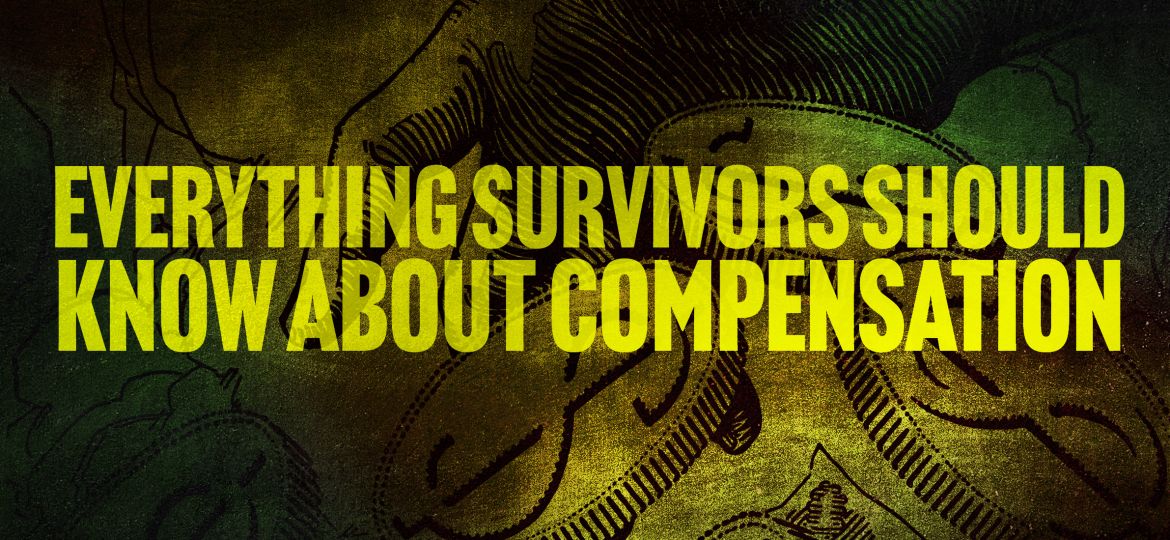What Is Sexual Abuse Compensation?
While no amount of money will cure trauma, receiving compensation can help survivors to access therapy, lower financial stress and help support their family. Sexual abuse compensation is the monetary compensation a survivor receives after their lawsuit is final and their case comes to a legal conclusion. This process can take years. Unfortunately, survivors do not always receive compensation. If a survivor does receive compensation, the amount varies greatly, and many factors influence the total amount. There is no one-size-fits-all answer to this question.
What’s the Difference Between Compensatory and Punitive Damages?
There are two major categories of damages regarding sexual abuse cases: compensatory and punitive. Compensatory damages are meant to compensate the survivor for the negative impact on their life. Punitive damages are intended to deter the institution from fostering an environment that tolerates abuse. Ideally, the institution would take it a step further and put new safety policies in place to ensure that their institution is safe for children and prevent abuse from happening again. In some situations, punitive damages may not be an available remedy for a survivor.
How is the Amount of Compensation Determined?
Factors that may affect the amount of compensation a survivor receives include, but are not limited to:
- The nature, frequency and severity of the abuse.
- What the institution knew about the alleged perpetrator abusing other kids before the survivor’s abuse.
- State-specific laws, regulations or compensation caps that legally impact how much someone can be compensated.
- Impact on the survivor – the physical, psychological, financial, and professional impacts the abuse has had on a survivor’s life.
- Available compensation – the total amount awarded to a survivor partially depends on how much is available from the party/or parties that will be required to provide said compensation along with any applicable and/or available insurance coverage.
Assessing the Impact of Abuse
Below are some of the categories that are often considered when evaluating and determining how a survivor was impacted by the abuse they suffered.
Medical & Therapy Expenses
Medical-related bills for doctor appointments, medications, surgeries, physical therapy, and more may be considered when assessing the impact of trauma or abuse. We know from studies that childhood trauma impacts your mental and physical life well into adulthood – if not the rest of your life.
The landmark Adverse Experiences in Childhood Study (ACES) shows that childhood traumas, such as sexual abuse, can lead to adverse mental health outcomes and physical health issues. These physical health issues may include cancer, diabetes, obesity, sexually transmitted diseases, heart disease, autoimmune disorders, depression, suicide, shortened life span, and mental health problems. Any costs associated with mental or physical ailments may be looked at.
The psychological impact of the abuse a survivor suffered is also a factor considered in assessing a survivor’s harm and impact of the abuse. The analysis of the impact of sexual abuse is conducted by a mental health professional who is hired by the survivor as part of their lawsuit. The mental health professional will conduct an examination(s) of the survivor, often will issue a report and testify in court if necessary.
There may be mental health diagnoses such as depression, anxiety, PTSD, complex PTSD, substance abuse disorders, OCD, and others. In general, legal experts may look at a survivor’s mental health struggles and how that impacts their daily lives.
Lost Income
Childhood trauma can impact a survivor’s career and how they show up in the workplace. Multiple academic studies have shown that survivors with childhood trauma may have issues in their relationships, including in the workplace. They may find it challenging to collaborate on work projects or feel like an “outsider”. This can create challenging social dynamics with colleagues and management.
Below are some other potential ways that trauma can manifest itself in the workplace:
- Struggling to meet deadlines and other demands of the job
- Difficulty coping with stress at work, even “minor” issues
- Having trouble with authority, whether that be their manager or someone else in a supervisory role
- Calling in sick often
These workplace issues may result in missed opportunities for promotions, demotions, termination, job hopping, or periods of unemployment.
The analysis of the impact of the sexual abuse on a survivor’s employment and career is done by a professional who is hired by the survivor as an expert in this area. The expert will conduct an assessment, issue a report and testify in court if necessary.
Where Does the Money Come From?
The source of compensation for sexual abuse varies from case to case. Compensation may come from the perpetrator, institutions where the perpetrator worked and/or where the abuse occurred (church, school, camp, etc.), insurance companies that insure those institutions, or a victim compensation fund.
How Much Can You Get from Sexual Abuse Compensation?
As stated above, it is not guaranteed that a survivor seeking compensation will receive any compensation. However, if a survivor does receive compensation, the amount varies greatly, and many factors influence the total amount. There is no one-size-fits-all answer to this question.
Every case of abuse is unique. The best way to learn more about potential compensation and get answers to legal questions is to speak to an attorney. You can contact us for a confidential and compassionate conversation.
Take the First Step with a Free Consultation with Jeff Anderson & Associates
Survivors of sexual assault have the right to pursue justice through the civil court system, holding both perpetrators and negligent institutions accountable. A civil lawsuit makes it possible for survivors to seek financial compensation for the economic burden of abuse, including medical care, lost income, and lifelong trauma. By working with trauma-informed advocates and trusted attorneys, survivors can build and prove their case. Filing a civil lawsuit not only offers survivors a path to rebuilding financial stability but also holds perpetrators accountable and prevents others from harm.


